Ballot Box Impacts for Hunters; Access Concerns on Proposed National Park in Midwest; Delta Advocacy for Shallow Wetland Conservation in Alberta, and More

Vigorous Duck Production, HunteR3, and other Delta-supported efforts continue across the United States and Canada
United States
State:
Proposed Great Rivers National Park Designation:
Delta staff recently attended a meeting hosted by AltonWorks in Alton, Illinois, to hear a presentation on their proposal to create a National Park designation in a region that would encompass several state and federal wildlife management areas and national wildlife refuges. Following the meeting, Delta policy staff wrote a letter to AltonWorks and the leadership of several state and federal agencies, such as the Missouri Department of Conservation and the United States Fish and Wildlife Service, highlighting concerns that this designation would end hunting access to public lands that were bought and paid for by hunters and are specifically managed for migratory waterfowl.
These areas have long been cherished by hunters and outdoor enthusiasts, providing vital opportunities for recreation and conservation education. Restricting access not only limits these experiences but also impacts local economies that benefit from hunting-related activities. By collaborating with local communities, conservation groups, and policymakers, Delta aims to find a balanced solution that respects both environmental protection and public access rights.
Pennsylvania Sunday Hunting Final Stretch:
The Pennsylvania legislature is days away from adjourning for the year, and there is still work to be done to repeal the prohibition against hunting on Sundays. Following a successful committee vote, Senate Bill 67 was amended slightly and re-referred to the Committee on Appropriations for consideration. With so few days left on the legislative calendar, Delta’s policy staff is working closely with our partners to urge House leadership to bring this bill over the finish line this session.
If you’re a Pennsylvania resident, you can make your voice heard here.
California Proposition 4:
Delta’s policy team is happy to report that in California, Proposition 4 has passed with over 5 million votes. Proposition 4, called “The Safe Drinking Water, Wildfire Prevention, Drought Preparedness, and Clean Air Bond Act of 2024,” will authorize $10 billion in bonds to support projects that will have positive impacts on a variety of climate and environmental issues. Specifically, this act includes $25 million that will go directly to support enhanced habitat conditions for managed wetlands. This funding will also support water-related projects for the Lower Klamath National Wildlife Refuge and the Central Valley Project Improvement Act (CVPIA) wetlands.
California wetlands are endangered, with 95% of the state’s historical wetlands already gone. This act will support these crucial environmental areas with the added benefit of providing habitat for migratory waterfowl along The Pacific Flyway.
Florida Amendment 2:
Delta Waterfowl is happy to report that Amendment 2 in Florida – The Right to Fish and Hunt – passed with overwhelming support, and Florida hunters will now join the dozens of other states whose constitutions protect hunting.
The economic benefit of hunting and fishing in Florida is more than $14 billion annually, and sportsmen and women directly contribute millions of dollars each year to conservation efforts in the state through licenses, stamps, and tags—yet the threats to hunting and fishing, and, with it, wildlife conservation across the country, are persistent. By passing Amendment 2, Floridians secured the ability to take part in our time-honored traditions of enjoying the outdoors for the future generations, all while protecting natural resources and promoting conservation.
Delta Partners with Missouri Department of Conservation on Pre-Season Meetings:
Last month, Delta staff and state level volunteers partnered with the Missouri Department of Conservation to host and conduct a series of stakeholder meetings across the state. These meetings were designed to better inform duck hunters and to connect public land waterfowl hunters with the “boots on the ground” managers of MDC conservation areas, providing hunters with an update on the management of these areas, current conditions, infrastructure alterations, and the timeframe for completion.
The Delta team sends thanks and appreciation to the Missouri Department of Conservation leadership and staff for helping make these meetings happen and hopes to continue these in the future.
Colorado Proposition 127:
In Colorado, the Delta team is thrilled to see that Proposition 127 failed to pass, with 55% of Coloradans voting NO. This proposition mischaracterized the legal, regulated harvest of mountain lions and bobcats in Colorado as trophy hunting and would have prohibited these activities in the state.
Although this issue is not waterfowl-related, “ballot box biology” is a concerning ongoing trend that affects all of the conservation community by allowing voters to make decisions that should be handled by professional biologists. Proposition 127 sought to undermine the professional wildlife managers employed by the Colorado Parks and Wildlife Department. The experts at CPW use the best available science and work tirelessly to manage and conserve Colorado’s public trust fish and wildlife resources.
Unfortunately, this trend is not limited to big game-related issues; it often affects migratory bird management as well. Delta is encouraged to see that Colorado voters have taken a stand on this issue and have chosen to leave wildlife management decisions in the hands of state biologists.
Colorado Proposition KK:
Unfortunately in Colorado, Proposition KK passed with 54% of the vote. This proposition will add a 6.5% state excise tax on the sale of firearms and ammunition. This tax will then be placed into a fund for “victim services,” which has been intentionally loosely defined in the bill’s language. This is on top of the already 11% federal excise tax being collected on firearms and ammunition under the Pittman-Robertson Act.
Proposition KK will have negative impacts not only on hunting but on youth shooting sports as well. The price of ammunition has already proven to be a barrier to entry that many families struggle with when getting their children involved in shooting sports. Delta is disappointed to see this outcome and will continue to support the rights of firearms owners in Colorado.
Canada
Federal:
Alberta Shallow Wetlands Incentive Program:
Delta staff in Canada continue to advocate for a Shallow Wetlands Incentive Program (SWIP) in Alberta—a tool that will help to conserve the small and shallow wetlands imbedded in annually cropped fields, which are the most important and vulnerable of wetlands on the landscape for breeding ducks. Based on data from the Canadian Wildlife Service, it is estimated that 0.88% of these wetlands are lost annually. Extrapolated over 50 years, this means that 37% of these wetlands will disappear in that time frame.
Delta policy staff had a presence at a Nature Summit in Calgary in mid-October and a ‘back to session bash’ that facilitated meetings with key ministers and Premier Danielle Smith. Delta has made a budget submission to the provincial government asking for SWIP funding and will be following up with meetings prior to Budget ’25.
Provincial:
Ontario, Nuisance By-law:
Township of South Stormont: Last month, Delta Waterfowl learned of another municipal by-law issue in eastern Ontario. The Township of South Stormont introduced a draft Nuisance By-law to address (some) concerns with regards to excess noise within the township. While there were several activities listed within the draft, Delta was informed that the primary concerns were the local speedway, a local shooting club, and the discharge of firearms in general.
Upon learning of the issue, Delta promptly reached out to township staff who reported that they had included a specific exemption for hunting. Shortly following that discussion, the township requested a formal meeting to further discuss the by-law, specifically requesting Delta’s feedback and recommendations.
The township is hosting an open house later this month to gather further resident feedback at which time they will re-evaluate and consider revisions to the by-law before it goes back to council for review. The township has informed Delta staff that they will keep us abreast of any further internal discussions as they work through the next round of consultation.
Atlantic Canada, Atlantic Migratory Game Bird Technical Committee Meeting:
Earlier this month, Delta’s policy team traveled to Sackville, New Brunswick, to participate in the fall Atlantic Migratory Game Bird Technical Committee meeting. Discussion topics included population status updates, bird banding/GPS collar initiatives, enforcement, potential future migratory game bird season amendments, and more. Delta was given the opportunity to provide an organizational update presentation while also relaying our members’ feedback on both the recent regulation amendments (which came into effect the fall of 2024), and some additional possible future amendments, particularly in Nova Scotia.
The next committee meeting is slated for April 2025.
Do you want to stay involved with issues that are threatening the future of waterfowl hunting? Now is the time to make your voice heard by registering for Delta Waterfowl’s Duck Hunters Action Alert System. Delta Waterfowl’s policy team will send you emails and alerts when issues impacting you arise and provide you with the tools and resources to engage with lawmakers. Text DELTA WATERFOWL to 52886 or click this link today to sign up!

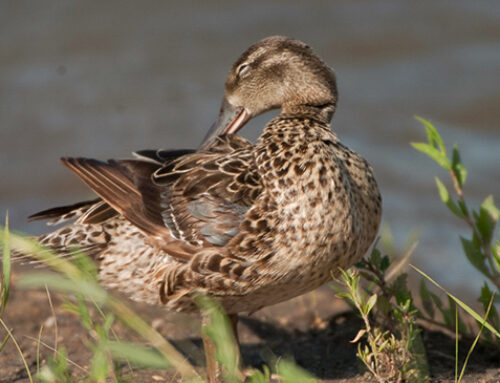
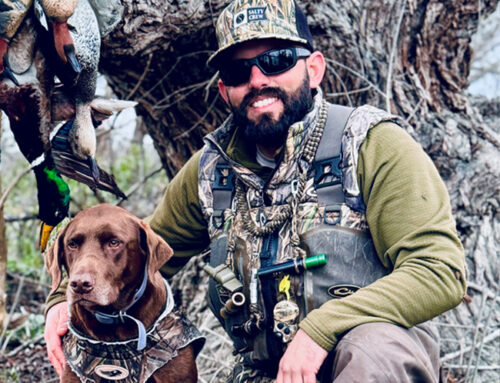
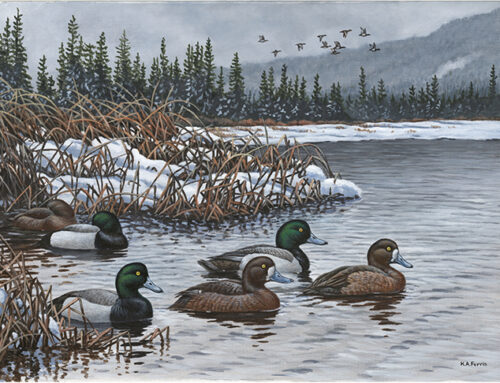
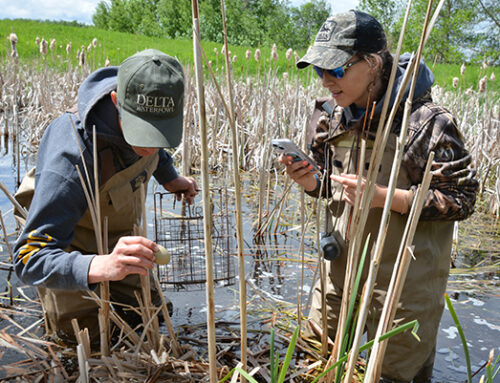
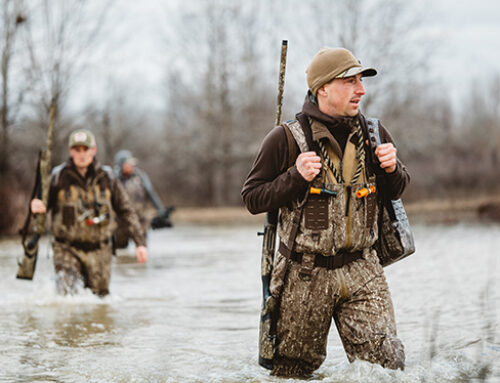
Leave A Comment